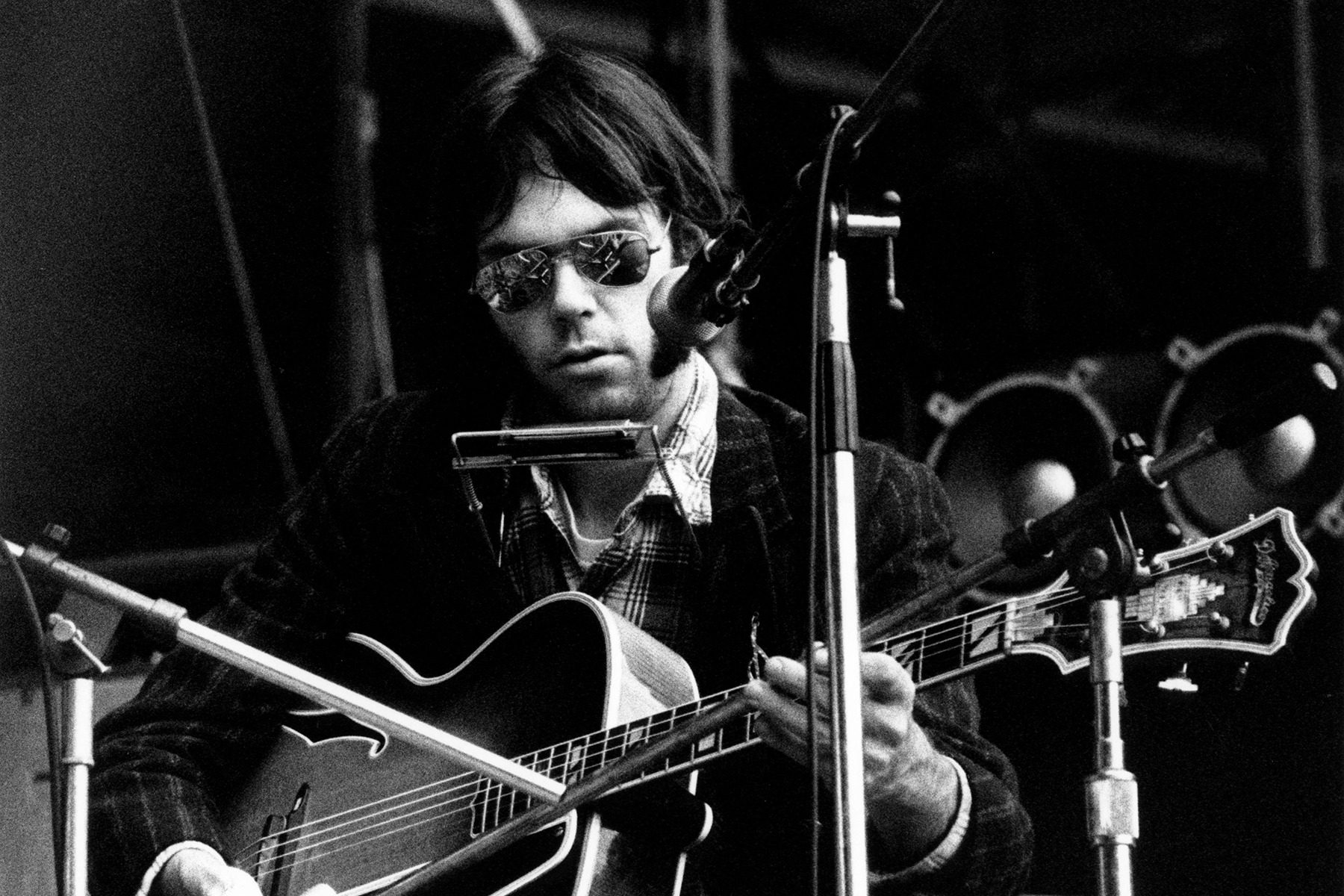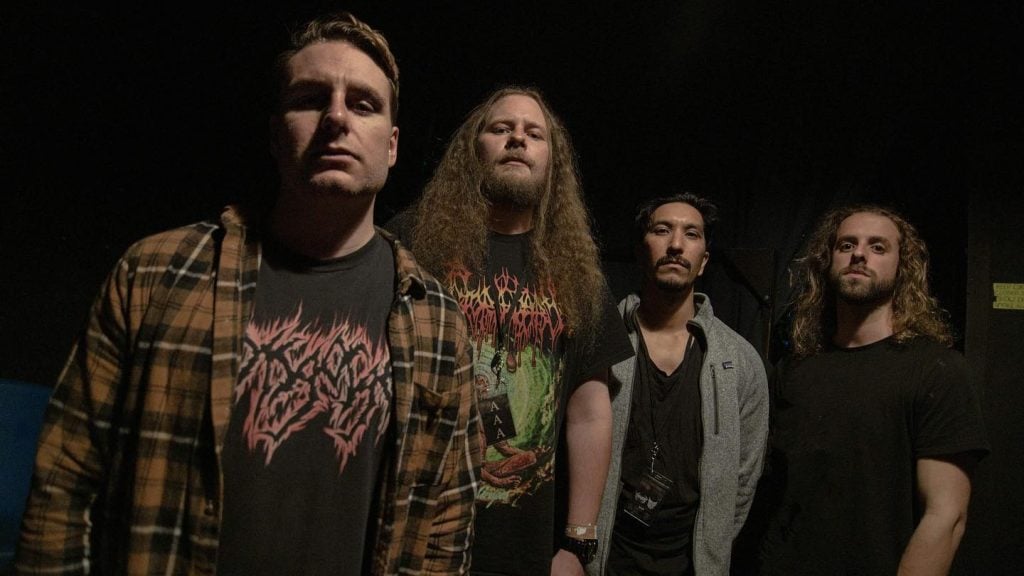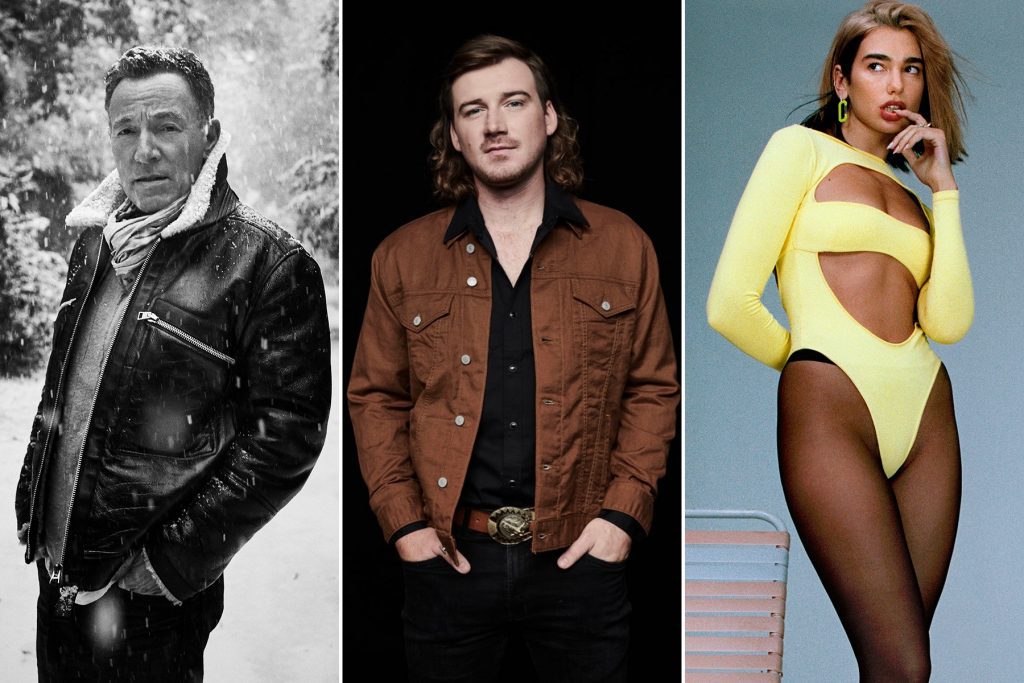
Camp Cope Find Power In Vulnerability on ‘Running With the Hurricane’
After several years of cutting their teeth in Melbourne’s underground scene, Camp Cope gained widespread attention outside their native Australia with the release of 2018’s How to Socialise & Make Friends. Simultaneously brash and sincere, the album tackled heavy topics — misogyny in the music industry, sexual assault, the death of a loved one — with an unrelenting aplomb, making Camp Cope one of the most hyped indie-punk outfits of the late 2010s.
Yet on Running With the Hurricane, which arrives four years after the group’s breakthrough effort, the trio of Georgia Maq, Kelly-Dawn Hellmrich and Sarah Thompson have swapped punk fury for folky romanticism, channeling the brutal honesty that first endeared the band to audiences into an emotionally intimate collection of tender-hearted indie rock. The album — which borrows its name from a song written by Maq’s late father, Australian musician Hugh McDonald — finds the group embracing a gentler, more introspective approach, triggered partially by the effects of self-isolation brought on by the pandemic. To run with the hurricane is to not be consumed by chaos, but to acknowledge its transformative power, approaching the turbulence of life — heartbreak, failed expectations, insecurity — not as something to be feared, but rather something to be faced head-on with wild abandon. “I’m climbing out, I can feel the air/I feel it like it’s always been there,” Maq sings on the standout title track. “It says, ‘The only way out is up’/I can stretch my legs and run/I’m taking my place, running with the hurricane.”
blogherads.adq.push(function () {
blogherads
.defineSlot( ‘medrec’, ‘gpt-dsk-tab-article-inbody1-uid0’ )
.setTargeting( ‘pos’, [“mid-article”,”mid”,”in-article1″,”mid-article1″] )
.setSubAdUnitPath(“music//article//inbody1”)
.addSize([[300,250],[620,350],[2,2],[3,3],[2,4],[4,2],[640,250]])
;
});
These themes of growth and reclamation weave throughout the album, centered around a loose narrative that, unlike most heartbreak records, embraces the bittersweet aftermath of love lost. Here, there is beauty in pain, strength in failure. Instead of rage and regret, Maq pines for empathy and absolution (“Sing Your Heart Out”). Fleeting romances aren’t agonized over, but memorialized in tiny, joyous elegies delivered with the self-assured perspective that only comes with the passage of time (“Say the Line”). Recurrent imagery of fire, hurricanes, chains serve as stand-ins for psychological torment meant to be conquered. At times, Running With the Hurricane is almost uncomfortable in its familiarity, as Maq’s deliberately vague and often incomplete lyrics play out like snippets of secrets muttered to oneself in moments of seclusion. But, it’s this intimacy that, at its strongest points, allows the album to command attention even during the most humble, exposed moments — the musical version of speaking softly while carrying a big stick.
Brief glimpses of the scrappy vocals exhibited on Camp Cope’s previous albums appear throughout the record — the jubilation in Maq’s voice when she exclaims, “Look out boys!” on “Running With the Hurricane,” when she almost breaks into a yelp on the chorus of “Jealous” — but the space between albums has allowed the group to develop the confidence needed to further refine their sound. When not occupied by her day job in the nursing field, Maq spent the pandemic re-training her voice — and the transformation is especially evident on album opener, “Caroline” as she envelopes the song in soft, almost hushed sweet nothings. While devotees of the band might balk at the thought of a “finely tuned” Camp Cope, the evolution displayed here is merely an expansion of the groundwork previously laid by the band rather than a complete reinvention. Even at their most DIY, Camp Cope was unabashedly emotive and earnest; on Running With the Hurricane, the trio leans into these elements for their own benefit.
blogherads.adq.push(function () {
blogherads
.defineSlot( ‘medrec’, ‘gpt-dsk-tab-article-inbody2-uid1’ )
.setTargeting( ‘pos’, [“mid-article2″,”mid”,”in-article2″,”mid-article”] )
.setSubAdUnitPath(“music//article//inbody2”)
.addSize([[300,250],[300,251],[620,350],[2,4],[4,2],[3,3],[2,2]])
.setLazyLoadMultiplier(2)
;
});
On “Blue,” the band flirts with country, the song’s chorus buffeted by lush vocal harmonies that evoke the early output of The Chicks as Maq tackles the anxieties of appearing too over-eager to a love interest. “Phone in my hand, still checking if you called,” she sings. “I’m double texting/No, I’ve never been cool.” (The concept of “double texting” makes more than one appearance on Running With the Hurricane, tethering the album to the stresses of a hyper-connected, always-online world.) “Jealous,” another album highlight, is an indie pop earworm about a partner so emotionally distant that their dog becomes the target of Maq’s envy. Propelled by a buoyant bassline from Hellmrich, the track provides a superficially gentler take on the central concept of Iggy Pop’s “I Wanna Be Your Dog,” but the subvertly sexual element still lingers beneath the surface: “Still got my collar on, it used to choke me out/I never really was into it but I’m sentimental now.”
Despite the triumphs on Running With the Hurricane, the band has a tendency to meander and linger on similar ideas over the span of several songs in a manner that feels unnecessarily repetitive. This lack of dynamism is most apparent in the record’s midsection. Yet the album’s high points reveal the full potential behind Camp Cope’s newly honed sound. Closer “Sing Your Heart Out” begins as a gentle piano ballad before culminating in a crescendo of thunderous drums and distorted guitars, as Maq reassures an unnamed subject (perhaps herself) that time heals all wounds. “You are not your past, not your mistakes/Not your money, not your pain,” she sings. “Not the years you spent inside/You can change and so can I.” It’s in these moments that Running With the Hurricane wields immense power in its vulnerability, giving space to uncomfortable emotions and embracing self discovery — making it a self-assured and honest endeavor from a band seemingly unafraid to go wherever the hurricane leads them.




